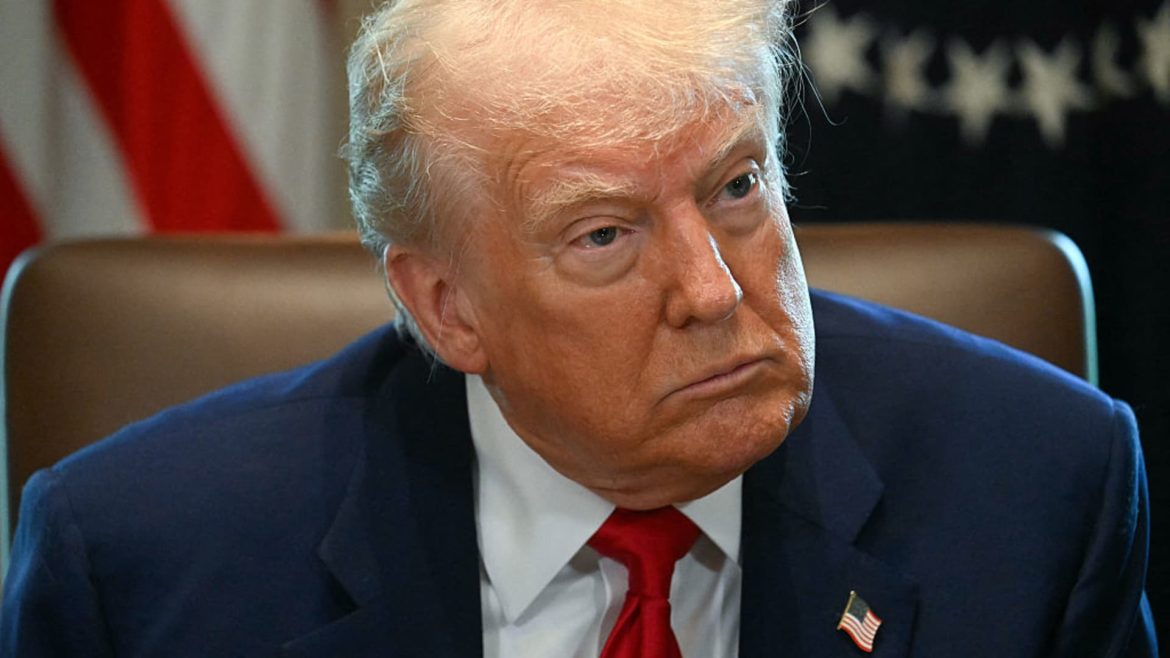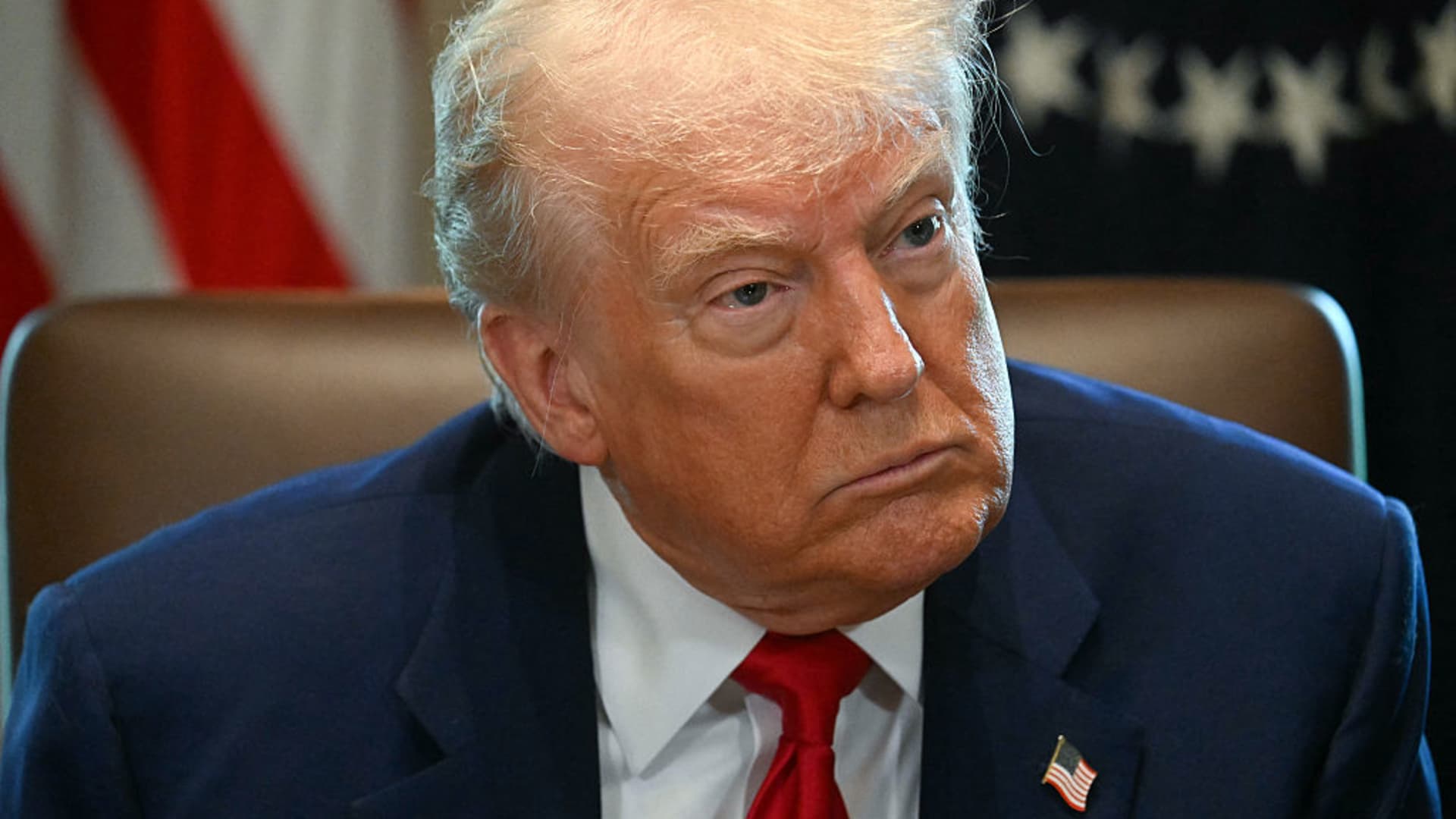The U.S. Chamber of Commerce and Trump’s Tariff Policies
The U.S. Chamber of Commerce, a powerful lobbying group representing millions of businesses, has been at odds with the Trump administration over its tariff policies. This report delves into the Chamber’s stance on tariffs, its interactions with the Trump administration, and the potential implications for the U.S. economy.
The Chamber’s Stance on Tariffs
The U.S. Chamber of Commerce has consistently opposed President Trump’s tariff policies, arguing that they are detrimental to the U.S. economy. The Chamber believes that tariffs lead to higher prices for consumers, job losses, and increased trade tensions. John Murphy, Senior Vice President and Head of International at the U.S. Chamber of Commerce, has been vocal about the Chamber’s position, stating that tariffs are not the answer to trade imbalances.
The Chamber has urged the Trump administration to implement a “tariff exclusion process” to prevent economic damage. This process would allow certain goods to be exempted from tariffs, reducing the economic burden on businesses and consumers. The Chamber has also called for a permanent end to tariff threats, arguing that the uncertainty surrounding tariff policies is harmful to businesses.
The Chamber’s Interactions with the Trump Administration
The U.S. Chamber of Commerce has engaged with the Trump administration in various ways, including lobbying, public statements, and legal threats. Initially, the Chamber considered suing the Trump administration to halt its global tariff assault. However, it ultimately opted for lobbying efforts, urging the administration to change course on tariffs.
The Chamber’s lobbying efforts have included calls for tariff exclusions and a permanent end to tariff threats. The Chamber has also welcomed pauses in tariff implementation, such as the 90-day pause on “reciprocal” tariffs announced by President Trump. However, the Chamber has been critical of the administration’s tariff policies, arguing that they are damaging to the U.S. economy.
The Potential Implications for the U.S. Economy
The U.S. Chamber of Commerce’s opposition to Trump’s tariff policies has significant implications for the U.S. economy. Tariffs can lead to higher prices for consumers, job losses, and increased trade tensions. The Chamber’s calls for tariff exclusions and a permanent end to tariff threats are aimed at mitigating these negative effects.
The Chamber’s lobbying efforts have also highlighted the importance of trade in the U.S. economy. The U.S. is a major player in global trade, and tariffs can disrupt supply chains and harm businesses that rely on international trade. The Chamber’s stance on tariffs reflects the broader concerns of the business community about the potential economic damage caused by protectionist policies.
The Legal and Political Landscape
The legal and political landscape surrounding Trump’s tariff policies is complex. The Trump administration has used various trade laws to impose tariffs, including the International Emergency Economic Powers Act (IEEPA) and a 1974 law that allows for tariffs on countries with which the U.S. has trade imbalances. The administration has also faced legal challenges to its tariff policies, with some businesses and trade groups arguing that the tariffs are unlawful.
The U.S. Chamber of Commerce’s decision to lobby rather than sue the Trump administration reflects the political and legal challenges involved in challenging the administration’s tariff policies. The Chamber’s lobbying efforts have been aimed at influencing the administration’s policies from within, rather than through the courts. However, the Chamber’s legal threats have also served as a reminder of the potential legal challenges to the administration’s tariff policies.
Conclusion
The Path Forward
The U.S. Chamber of Commerce’s opposition to Trump’s tariff policies highlights the broader concerns of the business community about the potential economic damage caused by protectionist policies. The Chamber’s lobbying efforts, calls for tariff exclusions, and legal threats have all been aimed at mitigating the negative effects of tariffs on the U.S. economy.
As the U.S. continues to grapple with trade imbalances and the economic fallout from the COVID-19 pandemic, the debate over tariffs is likely to continue. The U.S. Chamber of Commerce’s stance on tariffs reflects the broader concerns of the business community about the potential economic damage caused by protectionist policies. The Chamber’s lobbying efforts, calls for tariff exclusions, and legal threats have all been aimed at mitigating the negative effects of tariffs on the U.S. economy. Ultimately, the path forward will depend on the administration’s willingness to engage with the business community and address their concerns.


